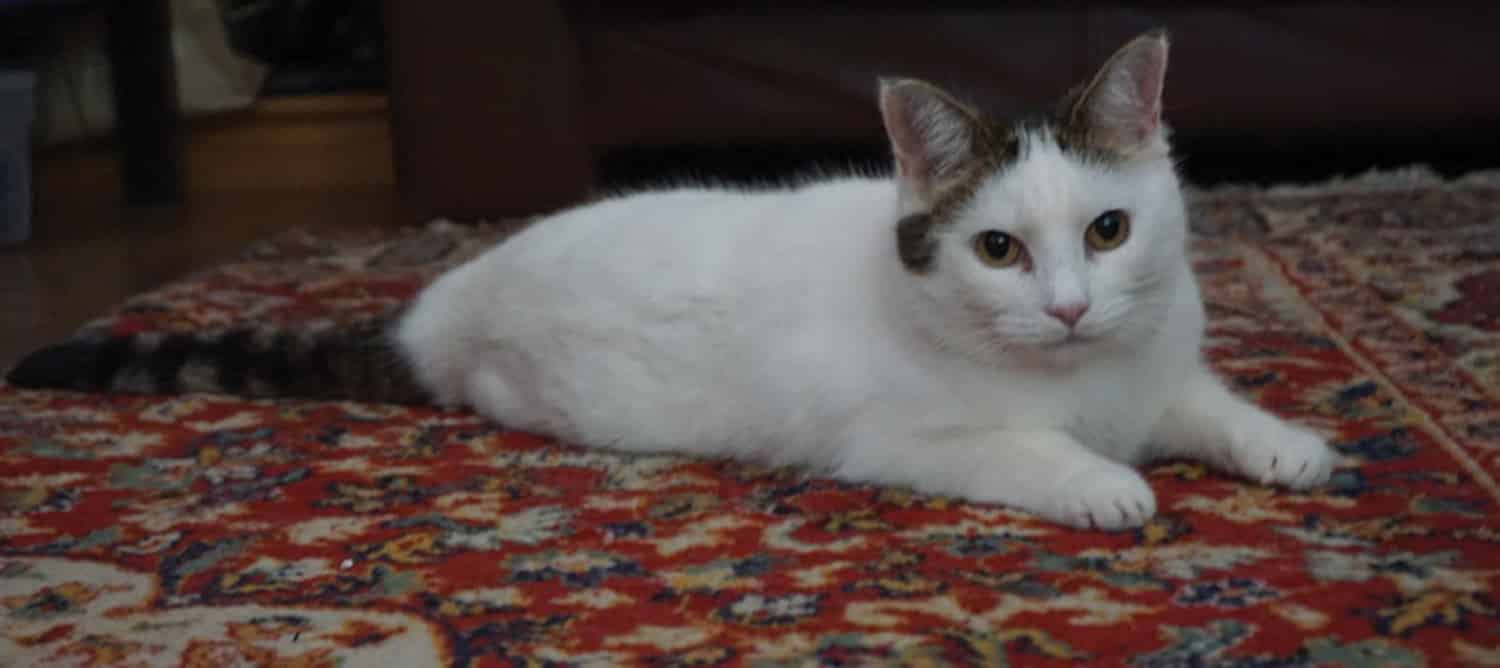Rescue cat that needs an inhaler for her asthma finds a forever home

Yes, cats can have asthma, and they’ll need an inhaler, just like any human.
Metro reports that take Alma as an example. She’s a sweet two-year-old kitty who was diagnosed with feline asthma after being brought into London-based animal welfare charity Mayhew Animal Home.
Alma had been found abandoned on the streets of North West London. She was quickly taken to the vet clinic, where it was discovered that she had issues with her lungs.
"We discovered that Alma had scarring on her lungs, the legacy of a particularly nasty bout of cat flu that she was suffering from when rescued," Mayhew vet Dr Emma Robinson said. "This caused her persistent bouts of coughing and we later diagnosed her with feline asthma. Cats with feline asthma experience persistent and/or recurring inflammation of the small airways within their lungs. The inflammation is caused by overreaction to a stimulus. What’s certain is inflammation of the airways causes them to narrow, making breathing more difficult, something only made worse by increased mucus production caused by the inflammation."
Alma had to be taught to use an inhaler, trained to breathe in through the nozzle. Luckily for Alma, she quickly found the perfect loving home with Alice Hudson.
"I’d never met a cat with asthma before," said Alice. "I didn’t even know a cat could get asthma, let alone use an inhaler like a pro." After recovering from the flu, Alma developed breathing difficulties, leading to her feline asthma being diagnosed.
"When she first came to live with me, she took an inhaler twice a day. Helpful staff at Mayhew were able to show me how to administer it, and I was surprised at how well trained and co-operative she was. Alma may be asthmatic, but that doesn’t stop her running around like a mad thing - chasing the cat laser light is among her favourite activities. My little princess leads a perfectly healthy, normal life and if all that purring is anything to go by, she is one content kitty."
What you need to know about feline asthma:
The most common sign of an asthmatic cat is coughing. You might also notice a change in breathing, such as heavier breaths.
If your cat displays these symptoms, book an appointment with a vet, who’ll likely recommend an X-ray or a bronchial lavage to collect cells from the airways.
If your cat is diagnosed with feline asthma they can be prescribed anti-inflammatory and bronchodilator drugs to be administered in tablet or liquid form, by injection, or by inhalation.
Inhalation is the best way to administer the drugs as they’ll go straight to the lungs - that’s where an inhaler comes in.
"Although it may sound unlikely, getting a cat to use an inhaler isn’t impossible, due to special spacer devices," vet Emma explains.
"Metered dose inhalers, which look exactly like human ones, are fitted to one end of the spacer chamber, whilst a face mask at the other end covers the cat’s mouth and nose. Perhaps surprisingly, most cats can be trained to use the device without too much fuss. A good thing, as the inhaler may be required at least once a day to keep symptoms in check."
(Story source: Metro)




